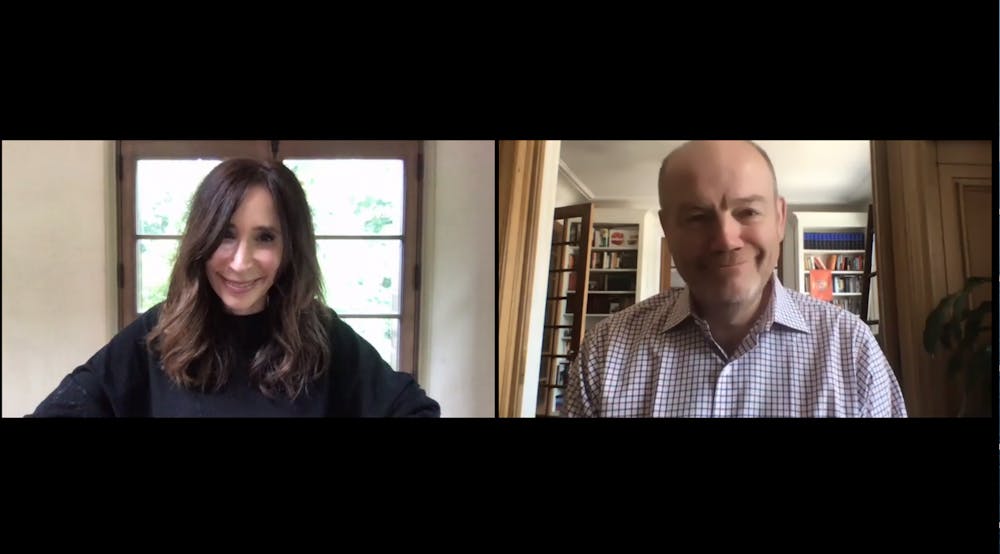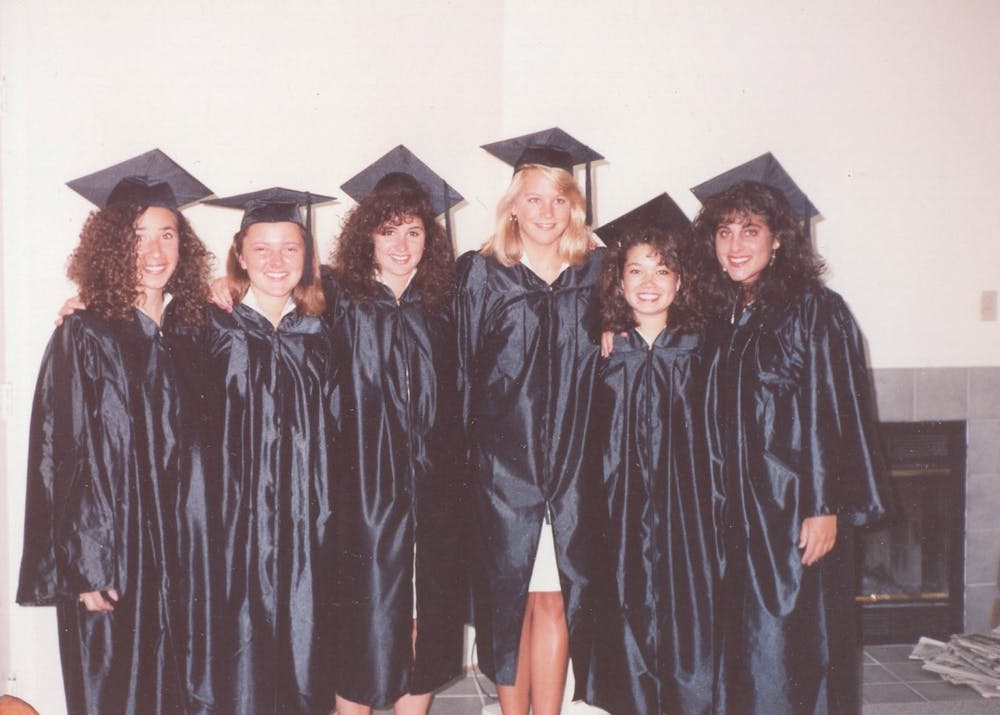Lea en español
Meredith Kopit Levien vividly remembers the day she first entered The Cavalier Daily office as a first-year student at the University of Virginia in 1990. Passionate about journalism and eager to get involved with the student newspaper, she climbed the stairs of Newcomb Hall to ask if she could become a reporter.
“I loved journalism, I loved writing, I loved editing, I loved reporting,” Levien said in an interview with The Cavalier Daily. “I had the bug for journalism very early in my life, and that's why I wanted to work on the paper at U.Va. It was super formative — I loved it.”
Last week, The New York Times Company named Levien as its next president and chief executive, making her the youngest person ever to lead the news organization. She will officially assume her new role Sept. 8 — less than 30 years after graduating from the University in 1993 as a rhetoric major and history minor.
“This is the honor of a lifetime and the privilege of my career to get to support the work of this newsroom and to have The New York Times do its part to support the ecosystem for quality, original, independent journalism and to get millions more people to have quality journalism play a role in their lives,” Levien said.

The incoming and outgoing chief executives of The Times, Levien and Mark Thompson. (Courtesy The New York Times)
Levien joined The Times in 2013 as its head of advertising after an illustrious career at the Advisory Board, The Atlantic and Forbes Media. She was promoted to executive vice president and chief revenue officer in 2015 and became the chief operating officer in 2017.
While at Forbes as a publisher and the chief revenue officer, Levien contributed to the magazine’s digital transformation in 2008 and witnessed digital ad revenue eclipse print revenue.
Now as chief executive of The Times, Levien says she will continue to expand the company’s strategy of “digital-first, subscription-first journalism” that has allowed The Times to generate revenue despite a recent decline in advertising. She also considers it her responsibility to make the news organization more firmly established as a “world-class digital product and tech company” that invests heavily in its journalism.
“I think it's foundational to democracy,” Levien said about the role of journalism. “We say that our mission at The New York Times is to help people understand the world, and I think more understanding means a more just world, a more equitable world, a better world.”
To accomplish this goal, she said the company needs to have a diverse team of journalists and leaders across all of its functions.
With the nation increasingly divided amid the ongoing pandemic and presidential election, Levien believes The New York Times must stick to its job by holding power to account and standing up for the role of independent journalism in a democratic society. Despite facing sharp criticism from the White House, Levien believes the news organization should respond by continuing to ask tough questions of elected officials.
“We are never the opposition to an administration or its supporters,” she said.
She attributes her understanding of journalism’s role in holding power to account to her experiences at The Cavalier Daily, where she contributed articles about the University administration as an opinion associate editor. Levien appreciated the independent nature of student journalism at the University which allowed the paper to speak out against critical issues — a theme that continues to motivate her as chief executive of The New York Times.
“I was really inspired by it,” she said. “I saw that when I was 20 with The Cavalier Daily and again, in a spiritually similar way, 30 years later.”
Growing up in Richmond, Va., Levien originally dreaded the idea of attending an in-state college and “reluctantly” came to the University, which lacks a journalism program. But within 24 hours of being on Grounds, she realized “this is the best thing that’s ever happened to me.”
Even today, she recalls lectures from her favorite professors — including Professor Brian Balogh who taught U.S. History from 1945 to the Present, a weeknight class in the library which Levien referred to as “three hours of exhilaration.” She also took courses in Russian history and political theory for which she sometimes comes back to the readings.
“I think it woke me up as far as my intellectual life,” Levien said. “Part of the ethos of being at U.Va. was that you were there to study and you were there to learn, and there to do it in this beautiful place, but you could also have a really good time while you're doing it. And I had a really, really, really good time.”
In fact, Levien and her friends didn’t want to leave the University. As fourth-years, they would mark the days to graduation on a calendar with red X’s, wishing to remain on Grounds for as long as possible.
She attributes much of her positive experience at U.Va. to having a close group of female friends who supported each other and navigated college together. Many of her friends still play an important role in her life today, Levien says, and she’s proud to have made lasting relationships with other students.
Looking back on her time at the University now as the highest ranking executive of one of the most influential news organizations in the world, Levien is proud to call herself a U.Va. graduate. Bit by the journalism bug early in her life, she found a way to cultivate her passion at the University with the student newspaper while maintaining a balanced social and academic life.
“Find your passion, find something that you really believe in, find something you really care about,” Levien said when asked for advice to current students. “You will find that you are ready to work really, really hard in support of something that you really care about.”







